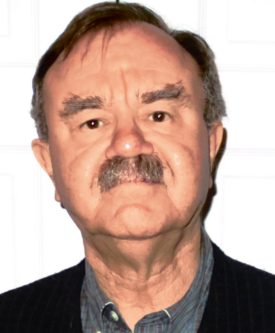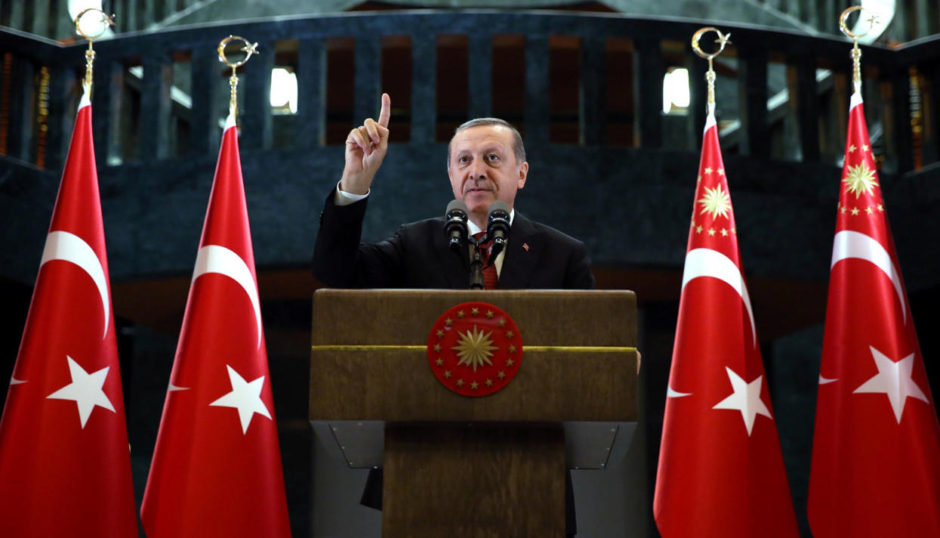Turkey was plunged into chaos on July 15 after a faction within the Turkish armed forces calling itself the “Peace at Home Council” launched a coup. Tanks were deployed in major cities, Turkish airspace was closed and international flights were suspended.
More than 160 civilians were killed and 1,440 wounded. The authorities said 104 suspected coup-plotters had also died.
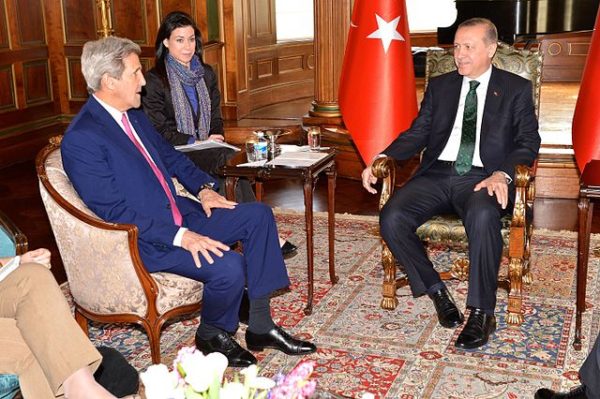
But it fizzled out, as people swarmed onto the streets in a show of support for the elected government of President Recep Tayyip Erdogan. Even Turkey’s four main opposition parties condemned the coup attempt, and most of the important branches of the military and security services rallied to the government’s side
Erdogan, who had been vacationing in the coastal resort of Marmaris when the coup was launched, flew to Istanbul’s Ataturk Airport to meet thousands of supporters who had gathered to greet him.
“What is being perpetrated is a treason and a rebellion. They will pay a heavy price for this,” he promised them. Noting that his government won a comfortable majority in legislative elections last year, he said, “This uprising is a gift from God to us because this will be a reason to cleanse our army.”
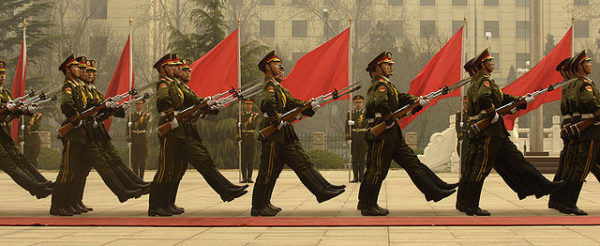
Indeed. Already almost 3,000 soldiers have been arrested, including two army generals. At least 2,745 Turkish judges have also been dismissed in the wake of the coup, state media say. They are reported to include a member of the country’s top court.
The president blamed the coup attempt on a small group of military officers loyal to the movement of a Pennsylvania-based cleric, Fethullah Gulen, who maintains a network of adherents across Turkey and has long challenged Erdogan’s hold on power. The officers were apparently destined to lose their jobs in August during a military reshuffle.
Gulen’s group, known as Hizmet, presses for a moderate version of Sunni Islam that emphasizes interfaith dialogue, and has regularly accused Erdogan of harassing and unfairly arresting its supporters. The movement denied any involvement in the coup.
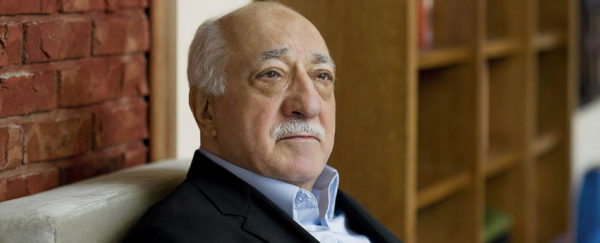
But Erdogan has in the past denounced Gulen’s movement as “an armed terrorist organization.” He demanded that Washington arrest and deport Gulen. Secretary of State John Kerry said the U.S. would consider extradition but required evidence of the imam’s wrongdoing.
Erdogan has made many other enemies in the 13 years he has run Turkey, first as prime minister and then, since August 2014, as president, including within the military. Hundreds of officers have been imprisoned by his government, some of them accused of coup-plotting.
He wants to change Turkey’s constitution, which was promulgated in 1980 following the last successful military coup, to adopt an American-style presidential system which would give him greater power.
Before the attempted coup, there had been extensive international criticism of Erdogan’s human rights record, especially his growing repression of the media. It has been reported that since 2014 1,845 journalists, writers and critics have faced charges of insulting the president, an offence which in Turkey carries a potential jail sentence.
Police used heavy force in 2013 to suppress mass protests demanding more freedom.
Erdogan faced particular scrutiny earlier this year after he demanded a criminal prosecution of the German satirist Jan Bohmermann, who used profane language to insult him on television.
Some social media users have claimed that Erdogan will use the attempted coup in the same way Adolf Hitler used the 1933 arson attack on the Reichstag, the German parliament building, as an excuse to suspend civil liberties and order mass arrests of his opponents.
Other observers even speculated that the coup was stage-managed to give Erdogan an opportunity to purge the military of opponents and increase his grip on Turkey.
However, in a country which has seen three military coups, in 1960, 1971, and 1980, plus a 1997 intervention to remove a government without the use of direct force, this hasn’t come as a total surprise.
The attempted coup happened because Turkey is deeply divided over Erdogan’s project to transform the country and because of the contagion of violence from the war in Syria, according to Jeremy Bowen, Middle East editor for the BBC.
“He is a political Islamist who has rejected modern Turkey’s secular heritage,” contends Bowen. “Erdogan has become increasingly authoritarian and is trying to turn himself into a strong executive president.”
Erdogan’s government has been deeply involved in the war in Syria, backing Islamist opposition to President Bashar al-Assad. But violence has spread across the border, helping to reignite the fight with the Kurdistan Workers’ Party (PKK), and making Turkey a target for the Islamic State (ISIS).
The country has suffered from recent terrorist bombings, including the one at Istanbul’s Ataturk Airport on June 28, blamed on Islamic State, which killed 45 people.
“Turkey has visibly turned into a one-man rule,” Aykan Erdemir, a former member of the Turkish parliament and now a senior fellow at the Foundation for Defense of Democracies, stated shortly after then-Turkish prime minister Ahmet Davutoglu resigned under pressure in May, apparently because of his ambivalence towards the proposed new constitutional arrangements.
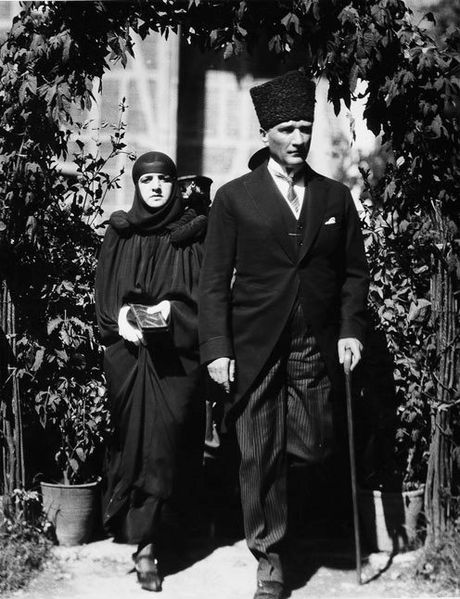
Certainly, there has been dissatisfaction in some secular army circles with Erdogan’s policy of moving away from the secularist principles of Kemal Ataturk, the revered founder of the Turkish Republic after World War I.
The current unrest has revealed a society deeply polarized between supporters and opponents of the president, whose autocratic behavior has alienated some segments of Turkish society but who remains hugely popular and commands the admiration and loyalty of millions of Turks.
The coup attempt “presents a dilemma to the United States and European governments,” Richard N. Haass, the president of the Council on Foreign Relations, remarked. “Do you support a non-democratic coup,” or an “increasingly non-democratic leader?”
Henry Srebrnik is a professor of political science at the University of Prince Edward Island.
